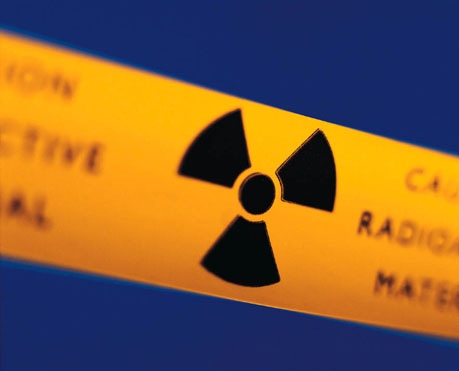Health experts say the pills are not necessary for Americans right now and can be unsafe, while FDA warns against fake radiation-protection products.

Although the Obama Administration continues to report that currently no radiation risk exists in the United States as a result of the Japanese nuclear plant explosions, consumers throughout California and other parts of the United States are not convinced and are buying up all of the potassium iodide, kelp and green food supplements they can find. Pharmacies around the country have sold out of Iosat and other full-strength, FDA-approved potassium iodide pill developed for nuclear emergencies.
The rush for potassium iodide also appears to have motivated some companies to illegally market supplement products claiming to prevent or treat the harmful effects of radiation exposure, according to the U.S. Food and Drug Administration (FDA). On its website, the agency warns consumers to be on the lookout for fake potassium iodide products and to be “wary of Internet sites and other retail outlets promoting products making false claims to prevent or treat effects of radiation or products that are not FDA-approved.”
On March 10, a powerful earthquake and resulting tsunami damaged the Fukushima Daiichi nuclear power plant in Japan. Soon after, the Internet lit up with information about how Americans could protect themselves against radiation exposure from Japan. Potassium iodide, which is used to prevent thyroid cancer, has been the remedy most prescribed by medical bloggers, health practitioners and others online.
Potassium iodide carries its own risks
At high enough dosages, potassium iodide is effective for preventing thyroid cancer in people who have been exposed to radiation. According to Hyla Cass, MD, “potassium iodide tablets are commonly stockpiled near nuclear power plants for rapid distribution in case of a radioactive accident.” The World Health Organization (WHO) recommends that adults receive 130 mg of potassium iodide within three hours of exposure.
Cass warns, however, that this much potassium iodide should only be taken in the event of a nuclear emergency. Consuming high doses of potassium iodide carries its own health risks, especially for people who are allergic to iodine or shellfish or who have thyroid problems. This is why many health practitioners are urging Americans not to begin taking potassium iodide because of fear over radiation exposure from Japan.
“There’s a huge body of water between us and Japan,” Kathryn A. Higley, head of nuclear engineering and radiation health physics at Oregon State University told The New York Times. “I have two kids. I’m not concerned for my kids one iota.”
Health officials in California, Washington state and elsewhere are working to ease consumer panic by assuring them that potassium iodide pills are not necessary. However, the U.S. Surgeon General Regina Benjamin contradicted that message March 17 when she told the media that she supported the idea of people stocking up on the supplements. “We can’t be over prepared,” Benjamin told an NBC Bay Area reporter. “We learned that on 9/11.”
The Surgeon General’s office released a statement on March 18 clarifying Benjamin’s position. “She commented that it is always important to be prepared, however she wouldn't recommend that anyone go out and purchase [potassium iodide] for themselves at this time,” Kate Migliaccio, a spokeswoman for the federal Department of Health and Human Services, said in an e-mail.“It’s important for residents who have concerns to listen to state and local health authorities.”
Profiting off fears
Searching Google for “potassium iodide supplements” reveals a slew of companies selling the pills under the guise of radiation protection. Prices and dosages of the products available vary widely. The desire to profit off fears following the Japanese nuclear disaster is reminiscent of the many flu-prevention products that hit the Internet following the H1N1 flu pandemic in 2009. Both the FDA and the FTC moved quickly to crack down on these fraudulent products, which the supplement trade associations also denounced.
Iosat, which is manufactured by the company Anbex, is one of three FDA-approved potassium iodide products on the market that can legally make radiation-protection claims. The other two are ThyroSafe from Recipharm AB and Fleming & Co.’s ThyroShield. The websites for all three companies say the products are currently out of stock.
In its warning about fake and fraudulently marketed potassium iodide supplements, the FDA recommended consumers be wary of:
claims that a product not approved by FDA can prevent or treat the harmful effects of radiation exposure;
suggestions that a potassium iodide product will treat conditions other than those for which it is approved;
promotions using words such as “scientific breakthrough,” “new products,” “miraculous cure,” ”secret ingredient,” and ”ancient remedy”;
testimonials by consumers or doctors claiming amazing results;
limited availability and advance payment requirements;
promises of no-risk, money-back guarantees;
promises of an “easy” fix; and,
claims that the product is “natural” or has fewer side effects than approved drugs.
“Don’t be fooled by professional-looking websites,” the agency warns. “Avoid websites that fail to list the company’s name, physical address, phone number or other contact information.”
About the Author(s)
You May Also Like




